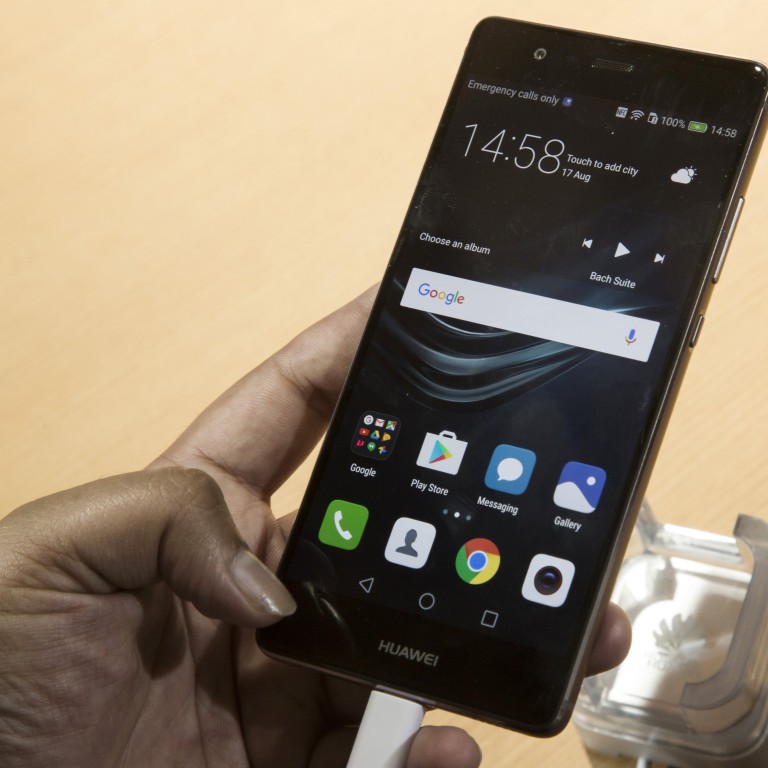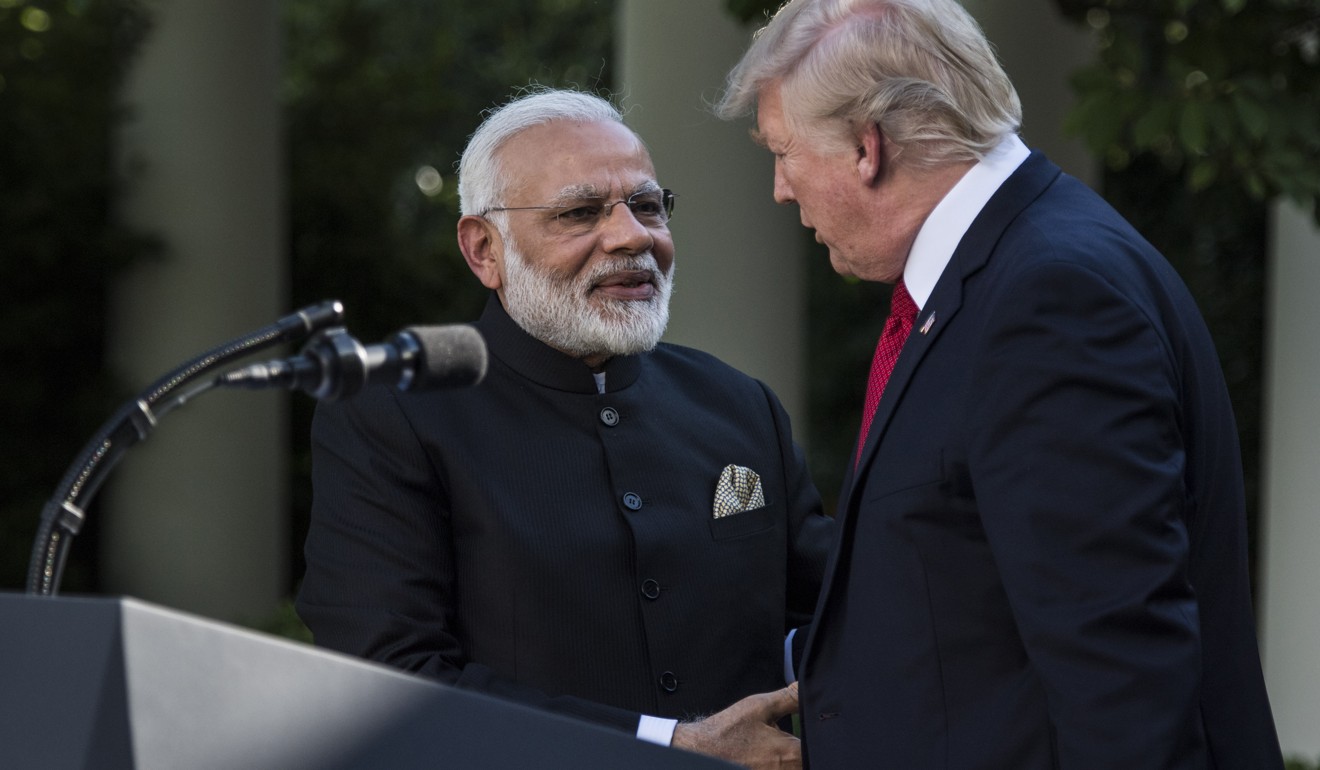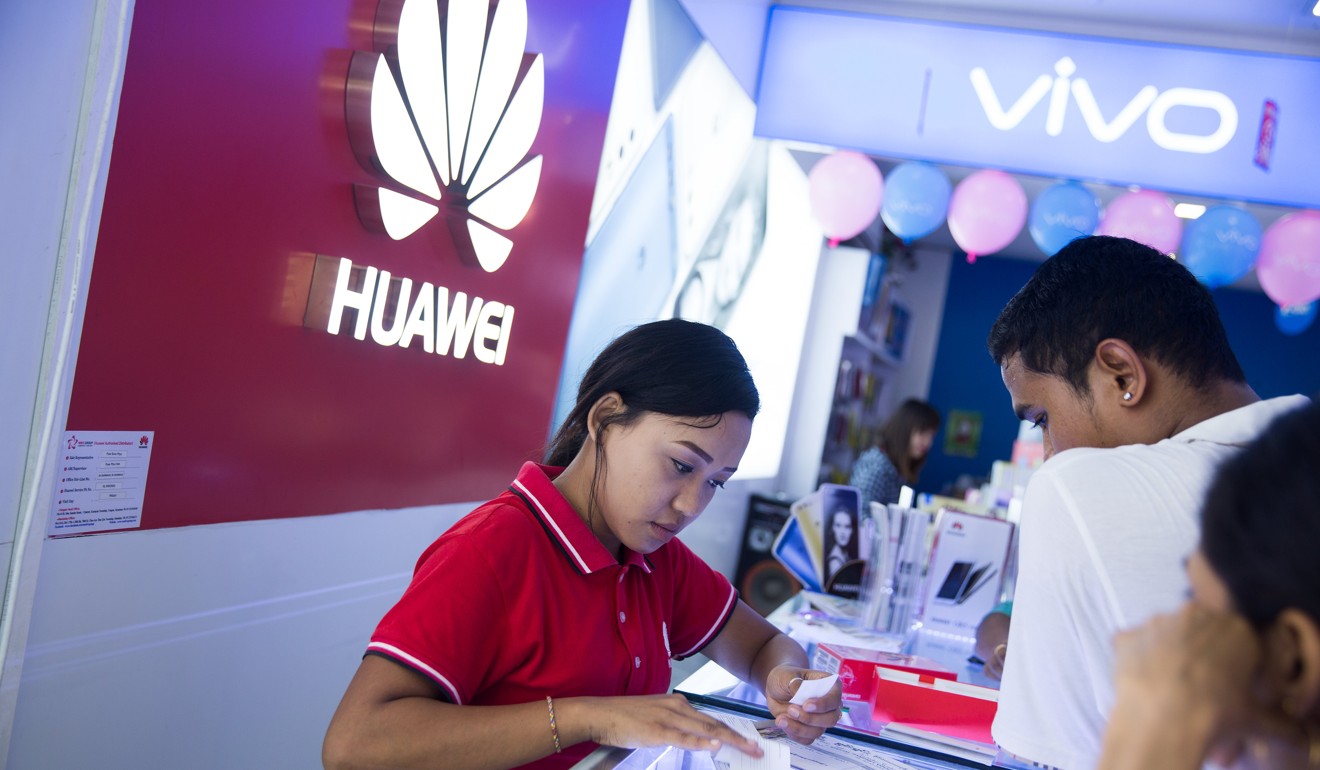
India should ignore US-China politics in making Huawei call
- India should be clear-eyed about the benefits and costs of engaging with the Chinese firm, rather than get lost in a debate about geopolitics
- But it should be under no illusions about Huawei and its ties to the Chinese state
India’s decision whether to allow Chinese telecommunications companies, including Huawei, a role in its 5G trials is being keenly watched, not only in the country but also in the United States and China.
Nevertheless, Huawei is already reportedly helping four of Britain’s mobile operators to build their networks, and Britain has appeared to have taken a call to allow Chinese equipment in what is being called “noncore” components of its 5G infrastructure.
Asia’s digital economy is booming. So why is Singtel struggling?
During a visit to India this week, Yang Yanyi, a former Chinese envoy to the EU and currently a member of the foreign affairs committee of the Chinese People’s Political Consultative Conference, a political advisory body, said India should not be “exclusive” in its choice.

Yang, leading a delegation on trade issues, was quoted in the Indian media as slamming Washington, saying it “should be ashamed for trying to exert state power to suppress a Chinese company and other companies from developing countries from excelling in [telecommunications]”.
China’s wrong, the US can kill off Huawei. But here’s why it won’t
According to Indian media reports, government agencies are divided on the matter. K. Vijay Raghavan, who heads a committee on 5G, was reported in the Indian media as favouring excluding Huawei from the 5G trials on security grounds, while other ministries were in favour of allowing Chinese vendors while adopting safeguards. So where does that leave India’s 5G decision? While the government considers the issue, here are three factors it should weigh carefully.
Firstly, while there is a temptation to view the 5G debate as an entirely political matter – and to locate it as a reflection of India’s broader attitude towards the US and China – this need not be the case. Politicising a technical and security issue would be counterproductive, and, as Ambassador Misri pointed out correctly, India would be better served by pursuing its national interest and basing its 5G stand on technical, rather than political, grounds. This would mean prioritising the security of India’s networks as well as the interests of the Indian consumer, and treating the issue on its own merits.
Secondly, India should carefully consider the merits of a complete ban targeting one country, as advocated by some in the US and followed by Australia. Britain has, so far, appeared to see it as excessive, viewing only a limited security threat from using cost-effective Chinese equipment in noncore infrastructure. As James Andrew Lewis of the Centre for Strategic and International Studies pointed out in a recent article, Britain “wants to take a middle position, not a full ban but also not ceding control or critical networks to Huawei and China”, arguing it can “manage the risk created by Huawei by blocking the use of any Huawei equipment around sensitive facilities”. This might also be the favourable outcome for India’s mobile phone companies, which have benefited massively from cheaper Chinese equipment in rolling out the rapid expansion of India’s 3G and 4G networks. Excluding Chinese equipment for 5G would come with costs for companies and consumers.
If Trump kills off Huawei, do Asia’s 5G dreams die?
Thirdly, India should at the same time be clear-eyed about the security implications of allowing a Chinese company a “core” role, regardless of how attractive an offer may be commercially. If Britain believes it can “manage the risk” from Chinese vendors, the Indian government should ask if it has the capacities and structures in place to do so, which remains to be seen.
India should be under no illusions about Huawei – or any Chinese company, private or state-owned – and its ties to the Chinese state. Claims by Chinese officials, including Yang Yanyi in India, that there is “no evidence” implicating Huawei are disingenuous to say the least, with numerous documented cases of questionable practices within the company, whether it involves accusations of stealing foreign technology or, according to the US Department of Justice, running internal programmes to reward employees for theft of foreign commercial secrets. Arguments that Huawei is no different from a Western company that works closely with its government hold little water for many reasons.

For one thing, the legal restrictions in place in most countries, regulating what governments can do and protecting the interests of companies, are absent entirely in China.
Secondly, the relationship between the Chinese private sector and the party-state is unique, to say the least. If Chinese companies prefer playing down their links to the state overseas, at home they make no bones about serving the party’s interests and goals. In Huawei’s case, the opacity of its ownership structure is another question mark. Moreover, drawing an equivalence between Chinese telecommunications companies, which may or may not serve their state, and Western ones that may or may not do likewise, is problematic as far as India is concerned, considering its unique relations with China, a country with which it shares a complicated relationship and an unresolved border. Ignoring the political and security context, as long as India’s political and security problems with China remain unresolved, would be irresponsible. As would taking at face value any guarantees from a Chinese company, without the capability to enforce those guarantees.
And only the government of India knows whether it is capable of doing so.
As India weighs these three factors, it should be clear-eyed about the benefits and costs. Ultimately, it would be better served assessing these factors based on India’s technical requirements and capabilities to ensure security and manage risk, which matter far more than the din of a debate lost in the optics of geopolitics. ■
Ananth Krishnan is a visiting fellow at Brookings India and was previously China correspondent for India Today

